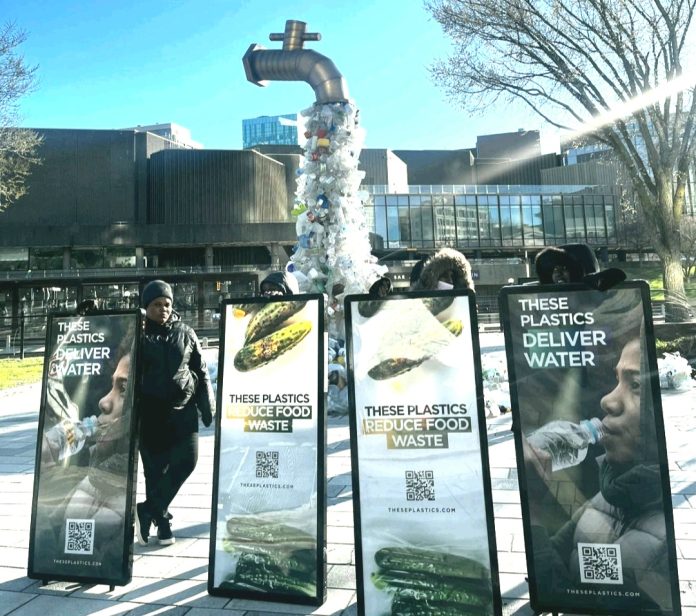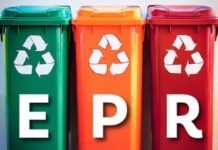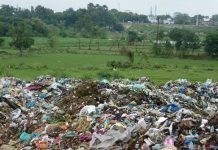
The fourth session of the Intergovernmental Negotiating Committee (INC-4) for a legally binding global plastics treaty concluded in Ottawa on 29 April. The disappointing news is that no definitive decisions were taken. The ray of hope is that there were debates and discussions on primary plastic polymers, reuse, recycling, and chemical concerns. The fifth meeting will be held in Busan, South Korea, in November.
Spearheaded by Peru and Rwanda, more than 50 countries endeavored to encompass the entire lifecycle of plastic in the treaty. Oil and plastic-producing nations, just as in the previous editions of the meeting, continued their insistence that it is not an upstream issue that could require a cut in polymer and plastic production, but more of a downstream problem, which is the management of plastics.
Opinions on extended producer responsibility (EPR), which would make the producers of packaging/brands responsible for the entire life-cycle of packs, were split. Some countries favored implementing global EPR schemes. Others said they would prefer for these schemes to be voluntary or not included in the final treaty text at all, media reports said.
According to a statement issued by the UN Environment Programme (UNEP), the meeting concluded with an advanced draft text of the instrument and agreement on intersessional work ahead of the fifth session in Busan. More than 2,500 delegates representing 170 members and over 480 observer organizations, including non-governmental organizations, intergovernmental organizations, and UN entities, participated in INC-4. This was the largest gathering to date, the UN said.
Delegates worked on negotiating the Revised Draft Text of the international legally binding instrument and discussed emissions and releases, production, product design, waste management, problematic and avoidable plastics, financing, and a just transition.
The members agreed on intersessional work – expert meetings between the official INC sessions. They decided to create an open-ended legal drafting group for INC-5, serving in an advisory capacity.
“We came to Ottawa to advance the text and with the hope that members would agree on the inter-sessional work required to make even greater progress ahead of INC-5. We leave Ottawa having achieved both goals and a clear path to landing an ambitious deal in Busan ahead of us,” said Inger Andersen, executive director of UNEP.
“The work, however, is far from over. The plastic pollution crisis continues to engulf the world and we have just a few months left before the end-of-year deadline agreed upon in 2022. I urge members to show continued commitment and flexibility to achieve maximum ambition,” Andersen said.
Environmentalists and experts working on plastics management see a long battle ahead. Joan Marc Simon, director-founder at Zero Waste Europe, wrote in an editorial, “All in all, this time the countries most impacted by plastic pollution managed to put up a fight in INC-4. Meanwhile, it appears the most polluting culprits got their way through further delays and derailing. There is one last round of negotiations which I hope will signal the beginning of something promising rather than the end of a nightmare. In the meantime, negotiators will continue building a wall not knowing if its purpose will be to trigger action against plastic pollution or to prevent it.”Zero Waste Europe is a European network of communities, local leaders, experts, and change agents working to eliminate waste.
The science has been clear, Simon writes. “We need to reduce plastic production if we want to stay under 2°C warming. The question is not whether we want plastic or not, but rather how much plastic can we afford to stay within planetary boundaries and protect impacted communities and ecosystems.”
Expressing disappointment, Greenpeace International said there is a growing prospect that we may not have a robust plastics treaty as the Ottawa negotiation caved into the interests of the fossil fuels and petrochemicals industry.
Graham Forbes, Greenpeace head of delegation to the Global Plastics Treaty negotiations, said, “The world is burning and member states are wasting time and opportunity. We saw some progress, aided by the continued efforts of states such as Rwanda, Peru, and the signatories of the Bridge to Busan declaration in pushing to reduce plastic production. However, compromises were made on the outcome which disregarded plastic production cuts, further distancing us from reaching a treaty that science requires and justice demands. People are being harmed by plastic production every day, but states are listening more closely to petrochemical lobbyists than health scientists. The entire world is watching, and if countries, particularly in the so-called ‘high-ambition coalition’, don’t act between now and INC-5 in Busan, the treaty they are likely to get is one that could have been written by ExxonMobil and their acolytes.”
Just ahead of the Ottawa meeting, Greenpeace had released a new global survey that says eight out of 10 people in India support cutting plastic production to save the country’s biodiversity and limit global warming to 1.5 degrees Celsius. Globally too, eight out of 10 people support cutting plastic production to stop plastic pollution.
Centre of Science and Environment’s Siddharth Ghanshyam Singh, who was in Ottawa, mentions in one of his reports that the Closing Plenary was marked by disappointment and dominated by like-minded groups. “The chair presented a proposal for intersessional work, inviting comments and suggestions from the committee. While several countries expressed their support for the Chair’s proposal, a brief (one-hour) consultation revealed that the like-minded countries were now the primary proponents of the new proposal for intersessional work.”
A reluctance to tackle pressing issues such as plastic reduction targets and the consensus versus voting problems stemming from Rule 38.1 of the draft Rules of Procedure raises serious concerns about the Chair’s capability and the committee’s willingness to meet the 2024 deadline for finalizing the treaty text, Singh writes.
The fourth session follows INC-1 in Punta del Este in November 2022, INC-2 in Paris in May/June 2023, and INC-3 in Nairobi in November 2023. INC-5 – set to be the end of the INC process – is scheduled for November 2024 in Busan. Only time will tell if 2024 will see a consensus on a global plastics treaty or if the Busan meeting will end in a logjam. So over to Busan.










